Top European PCB Manufacturers: A Comprehensive Guide
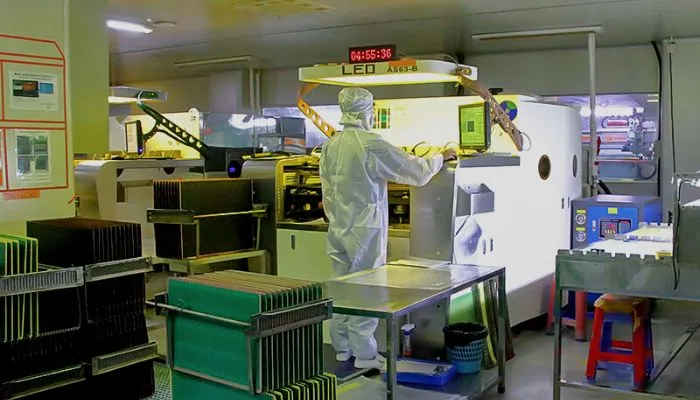
In today's interconnected world, Printed Circuit Boards (PCBs) are the backbone of countless electronic devices. From consumer gadgets to industrial equipment, the demand for high-quality, reliable PCBs is ever-growing. For European businesses seeking a dependable supply, understanding the landscape of European PCB manufacturers is crucial. This guide delves into the top manufacturers, their strengths, and what to consider when choosing a partner, connecting the complex world of electronics with everyday technological reliance.
Overview of the European PCB Manufacturing Landscape

The European PCB manufacturing landscape is characterized by a blend of established industry giants and innovative specialized manufacturers. Selecting a European partner offers significant advantages in terms of supply chain resilience, shorter lead times, adherence to stringent quality standards, and a commitment to environmental responsibility. This overview explores the key factors driving this market.
The European PCB manufacturing market is crucial for several industries including automotive, aerospace, medical, and telecommunications. These sectors demand high-reliability, high-performance PCBs, often with complex specifications. European manufacturers often prioritize advanced technology and stringent quality control. The geographic proximity of manufacturers and customers can lead to improved communication and collaboration.
- Key Players
The European market includes major players like AT&S, TTM Technologies, and Schweizer Electronic, alongside specialized manufacturers like Eurocircuits, Multi-CB, and AISLER. - Market Trends
Trends include increasing demand for high-density interconnect (HDI) PCBs, flexible PCBs, and PCBs for high-frequency applications. Additionally, there's a growing emphasis on sustainable and eco-friendly manufacturing processes. - Supply Chain Reliability
Choosing a European manufacturer mitigates risks associated with international shipping delays and disruptions. This proximity also allows for quicker resolutions to manufacturing-related issues. - Reduced Lead Times
European manufacturers can offer quicker turnaround times, particularly for prototype PCBs and small batch productions, compared to overseas manufacturers, enhancing project speed. - Quality Standards and Certifications
European manufacturers generally adhere to higher quality standards such as ISO 9001 and specific industry-related certifications (e.g., IATF 16949 for automotive), ensuring high reliability and performance.
| Factor | Impact of European Manufacturing |
|---|---|
| Supply Chain Security | Reduced risks of geopolitical instability and long shipping delays. |
| Lead Times | Shorter production and delivery times due to proximity. |
| Quality Control | Stringent standards and certifications ensuring high reliability. |
| Communication | Easier and more direct communication due to time zone alignment and reduced language barriers. |
| Environmental Regulations | Stricter European environmental standards often ensure more eco-friendly production. |
In summary, the European PCB manufacturing landscape offers a range of solutions tailored to diverse needs, with an emphasis on quality, reliability, and technological innovation. The market continues to evolve, driven by the demands of various industries and technological advancements.
Eurocircuits: A Leader in PCB Prototypes and Small Series
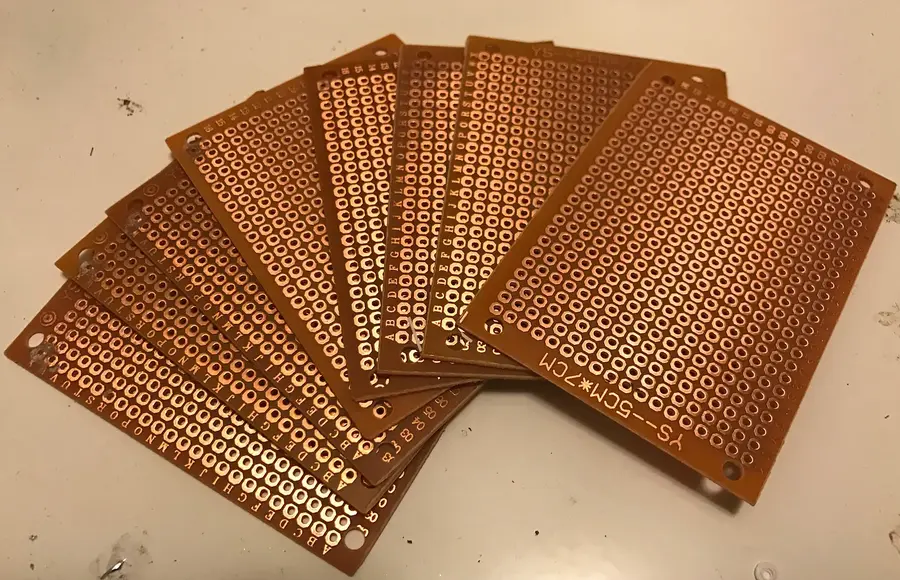
Eurocircuits stands out as a premier European PCB manufacturer, particularly recognized for its rapid turnaround times and specialized services in PCB prototyping and small series production. They offer a comprehensive suite of online tools and manufacturing options, designed to enable engineers to iterate quickly and efficiently, adhering to a 'Right First Time' philosophy, ensuring high quality from design to delivery.
Eurocircuits' focus extends beyond mere manufacturing; it emphasizes a virtual manufacturing approach, providing real-time feedback during the design process. This proactive approach mitigates errors and enables engineers to refine their designs quickly.
- Key Strengths of Eurocircuits
Quick Turnaround: Specifically focused on rapid prototyping and small series runs.
Virtual Manufacturing Options: Online tools provide real-time design feedback, reducing errors and improving efficiency.
'Right First Time' Approach: Commitment to quality control at every stage, reducing waste and time.
Comprehensive Online Platform: Streamlined quoting, ordering, and tracking process for better user experience.
| Feature | Description |
|---|---|
| Turnaround Time | Offers expedited manufacturing options, especially for prototypes and small series. |
| Virtual Manufacturing | Provides a suite of tools for online design validation and feedback. |
| Quality Focus | Adheres to a 'Right First Time' philosophy to minimize errors. |
| Order Process | A user-friendly online platform simplifies quoting, ordering, and tracking. |
Eurocircuits is an ideal partner for projects where time-to-market and the quality of prototypes are paramount. Their emphasis on digital tools and process optimization ensures that they are well-positioned to support rapid development cycles in the electronics industry.
Multi Circuit Boards (Multi-CB): High-Tech and Low-Cost PCBs
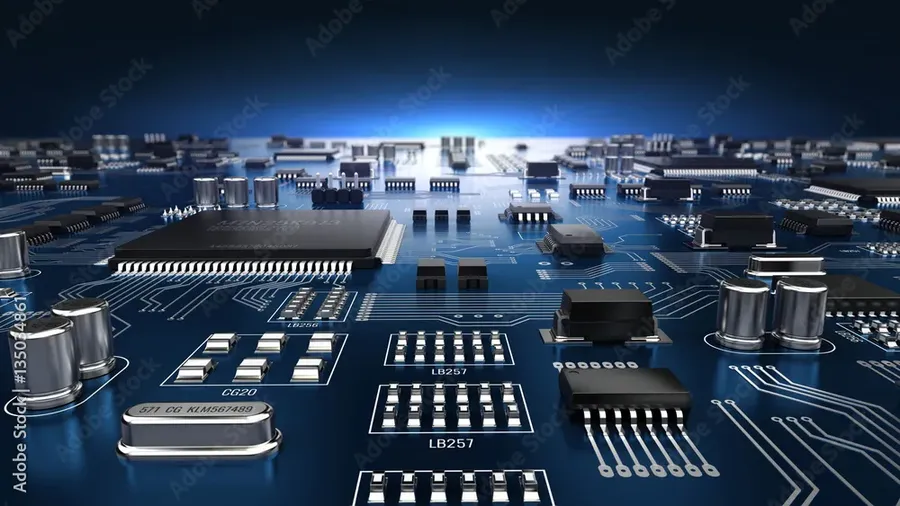
Multi Circuit Boards (Multi-CB) distinguishes itself in the European PCB manufacturing landscape through its capability to produce high-layer count PCBs while maintaining a focus on cost-effectiveness. Their expertise in advanced PCB technologies positions them as a key player for projects requiring complex and reliable circuit boards.
Multi-CB’s strengths lie in their technological prowess and rapid turnaround capabilities.
- High Layer Count PCBs
Multi-CB specializes in the fabrication of multilayer PCBs, supporting designs up to 48 layers. This capability addresses the needs of complex electronic systems requiring dense component integration. - Fast Turnaround Times
They offer competitive lead times, enabling clients to prototype and finalize products quicker. This is critical for projects that need to stay on track and in market deadlines. - Cost-Effective Solutions
While offering high-technology PCBs, Multi-CB is dedicated to maintaining competitive pricing, providing value for money to its customers.
| Feature | Description |
|---|---|
| Maximum Layer Count | Up to 48 layers |
| Technology Focus | High-layer, high-density PCBs |
| Turnaround Time | Fast and reliable |
| Pricing Model | Competitive |
Their ability to manufacture complex, multilayer PCBs positions them well for industries such as aerospace, medical devices, and telecommunications.
In summary, Multi-CB is a valuable choice for projects that demand high-layer PCBs, reliable quality, and rapid delivery times without compromising on cost-effectiveness. Their technological expertise and commitment to customer needs make them a strong contender in the European PCB market.
Key Players: AT&S, TTM Technologies, and Schweizer Electronic
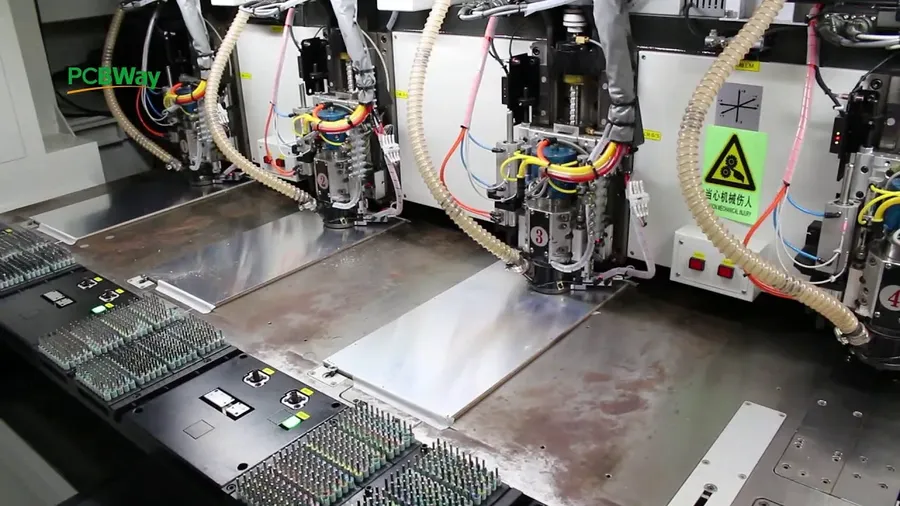
The European PCB manufacturing landscape is populated by several large, established companies that specialize in diverse market segments and technologies. Among the most prominent are AT&S, TTM Technologies, and Schweizer Electronic, each with unique strengths and market focuses. These companies are not just manufacturers; they are often technology innovators within the industry.
Here's a breakdown of each company's strengths:
- AT&S (Austria Technologie & Systemtechnik Aktiengesellschaft)
AT&S is a global leader in high-end printed circuit boards and IC substrates. Their expertise lies in advanced technologies such as HDI (High-Density Interconnect), complex multilayer PCBs, and substrate-like PCBs used in high-performance electronics. AT&S serves a broad range of sectors, including automotive, industrial, and medical technology. They have a strong focus on research and development, constantly pushing the boundaries of PCB technology. AT&S's scale and technological capabilities allow them to tackle large, sophisticated projects. - TTM Technologies (Formerly known as Tyco Printed Circuit Group)
TTM Technologies, while a global company, has a significant European footprint. They offer a broad portfolio of PCBs, ranging from standard boards to highly complex high-speed and high-reliability PCBs. Their expertise includes RF (Radio Frequency) and microwave PCBs, crucial for aerospace, defense, and telecommunications applications. TTM’s European operations cater to a wide range of customers, providing manufacturing capabilities and engineering support. - Schweizer Electronic
Schweizer Electronic specializes in innovative PCB solutions, focusing on automotive applications and complex embedded systems. Their core competence lies in manufacturing high-reliability PCBs for harsh environments, including products like printed circuit boards for electric vehicles. Schweizer is known for its expertise in embedding components within the circuit board to optimize space and performance. They focus heavily on the specific requirements of the automotive sector, including stringent quality standards and traceability.
| Company | Specialization | Key Technologies | Market Focus |
|---|---|---|---|
| AT&S | High-end PCBs and IC substrates | HDI, Multilayer, Substrate-like PCBs | Automotive, Industrial, Medical |
| TTM Technologies | Wide range of PCBs, from standard to high-speed | RF, Microwave, High-reliability PCBs | Aerospace, Defense, Telecommunications |
| Schweizer Electronic | Automotive and embedded systems | High-reliability PCBs, Component embedding | Automotive |
These three companies represent a segment of the high-technology, high-reliability segment of the European PCB manufacturing industry. Each brings a distinct approach to manufacturing, technology development, and customer focus, and they all play a significant role in global electronics supply chain.
AISLER: Quick and Affordable PCB Manufacturing
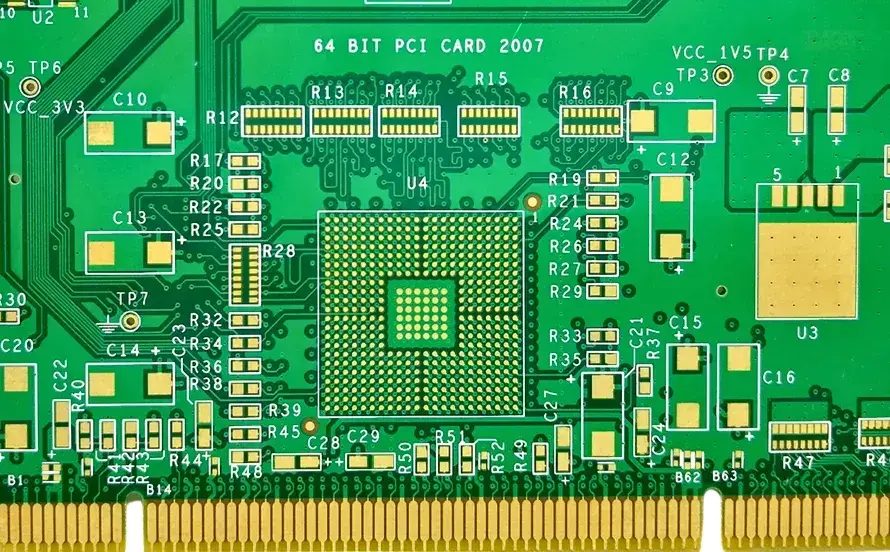
AISLER distinguishes itself in the European PCB manufacturing landscape by offering a blend of speed and affordability, particularly for rapid prototyping and small-batch production. Their commitment to manufacturing within Germany allows for efficient delivery and closer control over quality, catering to customers who need quick turnarounds without compromising on reliability.
AISLER’s services are focused on standard 2 and 4-layer PCBs, making them an ideal choice for projects that require these fundamental board configurations. This focus allows them to optimize their manufacturing processes for efficiency and cost-effectiveness, ensuring that customers receive high-quality PCBs at competitive prices.
- Key Features of AISLER
Here's a breakdown of AISLER's core offerings: - Rapid Turnaround:
They are well-known for their fast production times, which is critical for projects that need quick iterations. - Cost-Effective:
Their focus on standard PCBs allows for economies of scale, which translates to lower costs for users, particularly for prototyping. - German Manufacturing:
All PCBs are manufactured in Germany, which ensures consistent quality and reliable delivery within Europe. - 2 and 4-Layer PCBs:
Their specialization in these layers makes them an ideal option for the majority of standard applications. - Easy Ordering System:
They are known to have a user-friendly platform, which simplifies the ordering and configuration process.
| Feature | Description |
|---|---|
| Manufacturing Location | Germany |
| Standard Layer Count | 2 and 4 Layers |
| Turnaround Time | Rapid, optimized for quick prototyping |
| Cost | Competitive, especially for standard orders |
| Focus | Small to medium volume, rapid prototyping |
In summary, AISLER is a strong contender in the European PCB manufacturing market, particularly for clients requiring quick turnaround times and cost-effective solutions for 2 and 4-layer designs. The location of manufacturing in Germany further offers a level of quality and reliability that is valuable for engineers and designers across Europe.
Other Notable European PCB Manufacturers
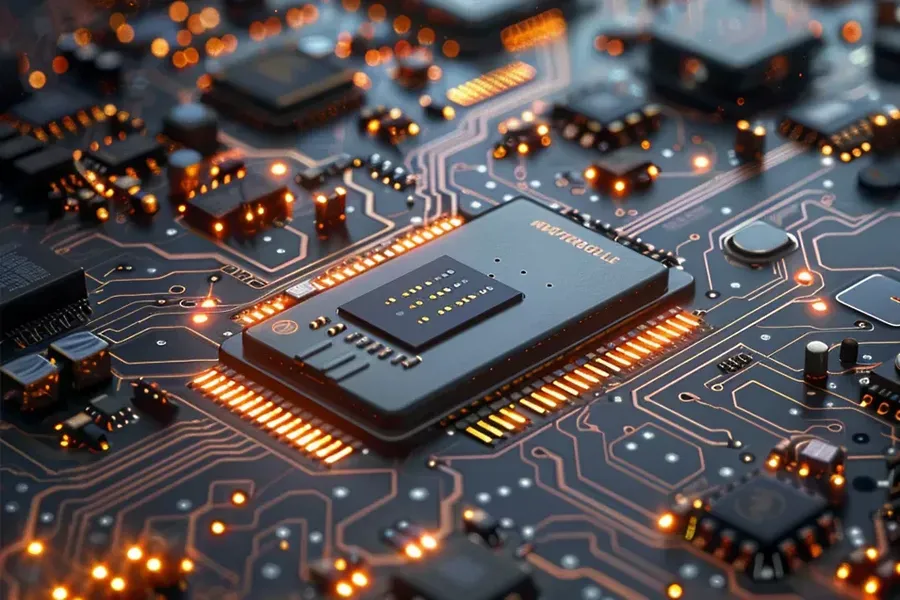
Beyond the major players, Europe boasts a diverse range of PCB manufacturers, each with unique specializations and offerings. This section explores several other notable companies that contribute significantly to the European PCB market, providing a broader view of available options.
- NCAB Group
NCAB Group is a global PCB sourcing company with a strong presence in Europe. They don't manufacture PCBs themselves but act as a trusted intermediary, sourcing PCBs from carefully selected factories, primarily in Asia, but also working with European partners. Their strength lies in their quality assurance processes, technical expertise, and supply chain management. They cater to a broad range of customers, focusing on high-quality, complex PCBs. - Wurth Electronic
Wurth Electronic is a well-established company, known for its comprehensive portfolio of electronic components, including PCBs. Their PCB division provides a range of manufacturing services, including prototype and small series production. Wurth is particularly strong in offering services along with their product sales, creating a one stop shop experience for some clients. They have a reputation for delivering high-quality products and are a popular option for German customers. - KSG GmbH
KSG GmbH, based in Germany, is a medium-sized PCB manufacturer with a focus on high-technology, high-reliability PCBs. They have invested heavily in advanced manufacturing technologies and offer a wide range of PCB types, including HDI, flex-rigid, and heavy copper boards. KSG serves a variety of sectors, including automotive, medical, and industrial automation, and has a reputation for technical competency, flexibility, and reliability. They are one of the most well-equipped PCB manufacturers in Germany.
These companies, along with others in the European landscape, demonstrate a wide breadth of capability and specialization, catering to different needs and budgets, adding flexibility to the European market.
Factors to Consider When Choosing a European PCB Manufacturer
Selecting the right European PCB manufacturer is crucial for the success of any electronics project. This decision hinges on a multitude of factors, each playing a significant role in determining the quality, cost-effectiveness, and timely delivery of your printed circuit boards. A comprehensive evaluation of these factors will help ensure that your chosen manufacturer aligns with your specific project requirements.
Here’s a checklist of essential factors to consider:
- Production Capacity
Assess whether the manufacturer can handle your required volume, both for prototypes and larger production runs. This includes evaluating their machinery, staff size, and available facilities. - Lead Times
Determine the time it takes from design submission to receiving the finished boards. Fast turnaround times are crucial for time-sensitive projects, especially in the prototype phase. - Cost
Analyze the overall cost, considering not only the price per board but also setup fees, tooling charges, and any potential extra expenses. Seek a balance between cost and quality, as the cheapest option may not always be the best. - Technology Capabilities
Ensure that the manufacturer is capable of producing the specific type of PCBs you need (e.g., single-sided, double-sided, multilayer, HDI). Evaluate the manufacturer's expertise with relevant technologies. - Certifications and Standards
Verify if the manufacturer possesses necessary certifications like ISO 9001, ISO 14001, and IPC standards. Compliance with these standards ensures that they adhere to quality, environmental, and industry best practices. - Customer Support
Evaluate the responsiveness, communication quality, and technical assistance offered by the manufacturer. Efficient customer support is essential for resolving any issues or queries that might arise during the process.
Beyond these factors, consider the manufacturer’s location within Europe, as it may affect shipping times and import/export regulations. It's also wise to seek references or case studies from previous clients to gauge the manufacturer's reliability and overall service quality. A well-thought-out evaluation of these factors will guide you to choosing a European PCB manufacturer that best suits your requirements.
European PCB Manufacturer Comparison Table
This comparison table offers a concise overview of several key European PCB manufacturers, enabling engineers and buyers to quickly assess their suitability based on crucial factors. The table focuses on specializations, typical minimum order quantities (MOQ), and estimated delivery times, providing a practical resource for informed decision-making.
| Manufacturer | Specializations | Typical Minimum Order Quantity (MOQ) | Estimated Delivery Time | Key Technologies |
|---|---|---|---|---|
| Eurocircuits | Prototypes and small series | 1 | 1-5 days (prototypes), 5-15 days (small series) | Multilayer PCBs, HDI |
| Multi-CB | High-layer PCBs (up to 48 layers) | 1 | 2-10 days (prototypes), 7-20 days (production) | High Layer Count, High Density Interconnect |
| AT&S | High-end PCBs, HDI, IC substrates | Varies based on complexity | 1-4 weeks (depending on complexity) | HDI, Flex PCBs, IC Substrates |
| TTM Technologies | Aerospace, defense, and automotive PCBs | Varies based on complexity | 2-6 weeks (depending on complexity) | Rigid PCBs, Flex PCBs, RF PCBs |
| Schweizer Electronic | Automotive, power electronics PCBs | Varies based on complexity | 2-5 weeks (depending on complexity) | High Current PCBs, High Temperature PCBs |
| AISLER | Quick turn prototypes | 1 | 2-5 days | 2-layer, 4-layer |
| NCAB Group | Wide range of PCBs, large volume | Varies based on project needs | 2-6 weeks | Multilayer PCBs, Rigid-Flex PCBs |
| Wurth Electronic | Standard PCBs, embedded technology | Varies based on project needs | 1-4 weeks | Multilayer PCBs, High Frequency PCBs |
| KSG GmbH | High-mix low-volume production, specific technologies | Varies based on project needs | 2-6 weeks | Rigid PCBs, Flex PCBs, Metal Core PCBs |
Note: Delivery times and MOQs are estimates and may vary depending on the specific requirements of each project. It's advisable to consult directly with the manufacturer for precise information.
Frequently Asked Questions about European PCB Manufacturers
Navigating the landscape of European PCB manufacturers can raise several questions. This section addresses common queries regarding certifications, prototyping, technology differences, and lead times, offering clarity to inform your decision-making process.
- What certifications should a European PCB manufacturer possess?
Key certifications to look for include ISO 9001 (Quality Management), ISO 14001 (Environmental Management), and specific industry certifications like IPC standards (e.g., IPC-A-600 for PCB acceptability). These certifications ensure quality, reliability, and adherence to industry best practices. - What prototype PCB options are available from European manufacturers?
Most European PCB manufacturers offer rapid prototyping services, which vary in terms of speed and cost. Options typically include standard prototypes with quick turnarounds, expedited services for urgent needs, and low-volume runs for initial testing. Some also offer virtual manufacturing tools for design verification. - How do the technologies offered by different European PCB manufacturers vary?
The technological capabilities vary significantly. Some manufacturers specialize in standard multilayer PCBs, while others offer advanced options like HDI (High-Density Interconnect), flex and rigid-flex boards, and embedded components. Understanding each manufacturer's technological forte is crucial for selecting the right partner for your project. - What are typical lead times from European PCB manufacturers?
Lead times can vary significantly based on the complexity of the PCB, the manufacturer's production capacity, and the urgency of the project. Standard prototypes can range from a few days to a couple of weeks. Complex and custom orders may require longer lead times. Always confirm the estimated delivery time before placing an order. - Can European PCB manufacturers handle both small-batch and large-scale production?
While most manufacturers handle small-batch production for prototypes and initial trials, not all offer high-volume production runs. Confirming a manufacturer's capacity for scaling up, in addition to their prototyping capabilities, will ensure consistent supply if your production requirements increase. - What are the key differences between PCB manufacturers specializing in quick-turn prototypes and those focusing on high-volume production?
Manufacturers focusing on quick-turn prototypes usually excel in speed and design flexibility, often employing automated processes tailored for rapid turnaround. Those specialized in high-volume production often emphasize efficiency and cost-effectiveness, utilizing highly optimized production lines for mass manufacturing, often with less design flexibility but higher volume output and less cost per board at high volumes. - How can I get a quote from a European PCB manufacturer and what information is needed?
To get a quote, you'll generally need to provide your Gerber files (the standard file format for PCBs), the desired quantity, board layer details, materials, surface finish, and any special manufacturing requirements. Some manufacturers also offer online quoting tools. Always specify the exact requirements for an accurate quotation.
Choosing the right European PCB manufacturer is critical for project success. Whether you prioritize rapid prototyping, cost-effectiveness, or cutting-edge technology, a thorough understanding of the European PCB landscape is essential. European manufacturers often provide a blend of quality and innovation. By evaluating your specific needs against the capabilities of leading players like Eurocircuits, Multi-CB, and others mentioned, you can secure a partnership that supports your goals and fosters success in the electronics industry.
 AnyPCBA
AnyPCBA